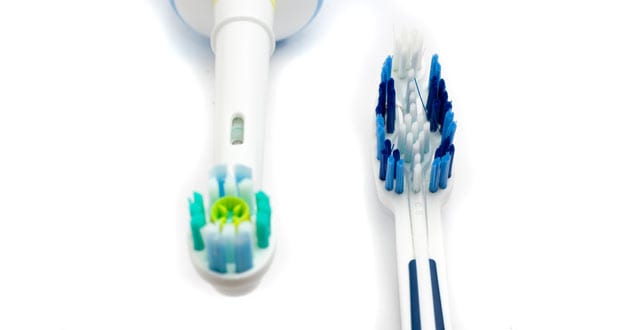
Walking down the toothbrush aisle at the store can be overwhelming! So many choices! What would a dentist choose?
Here at Rogers Family Dental in Greeneville, TN, we often get questioned about which toothbrush is the best. Here is some insight from Dr. Jon Rogers:
The answer is truly that there is no one “best” toothbrush for everyone, but here are some good guidelines as to how to make the best decision.
First, be aware that as dentists, we should base our recommendations not on personal bias, but on good quality science, where we have a chance to test these different toothbrushes on many, many people to see if they do truly work. Many scientific research papers have been published comparing different manual toothbrushes and comparing manual and electric toothbrushes to see which is best.
Much of this dental “research” is done through funding from the manufacturer, which immediately calls into question the findings of the study. In other words, be skeptical of any study done by a company which shows that company’s product to be the best! So, in making our recommendations, we have to make sure we are not being caught up in the “hype” of marketing.
1) Is there a “best” manual toothbrush?
There is no good evidence to support that one design of manual toothbrush is really better than any other as long as they are all used for the same amount of time. My recommendation there is to go with any ADA-Accepted toothbrush, which at least means it has been tested and found to be effective. There should be a logo somewhere on the package which shows that it is one of the accepted toothbrushes.
2) Manual vs. electric toothbrushes…which is better?
Probably the most thorough study on manual vs. electric toothbrushes was performed by the Cochrane Oral Health Group, which is a large group of independent researchers who receive no funding from any manufacturer. They found that manual and electric brushes were very similar in their effectiveness at removing plaque. Only the Oral B Professional electric toothbrush was a bit more effective overall than any of the others, including the manual brush. And it was only about 10% more effective, so not a life changing difference.
3) So, what’s the bottom line- electric vs. manual brush?
First, realize that proper brushing for 2 minutes twice per day with a manual brush is sufficient for most patients. The advantages of an electric are:
- The timer will keep you honest about how long you are brushing
- Some people brush too hard which can cause gum recession; electric brushes do not allow you to apply excessive pressure so they are better for patients with toothbrush-induced gum recession
- The Oral B electrics may be slightly better at plaque removal than a manual brush
- Electrics can often be great for kids to give them motivation to brush plus the timer can be critical in making sure they are doing their part properly
For many of our patients, a manual brush is more than sufficient, but for patients that really struggle with plaque control or recession, an electric brush may be worth the investment.
If you are not currently a patient here at Rogers Family Dental in Greeneville, TN, we would love to have you here to discuss specifically which oral hygiene routine would work best for you! We also include a free toothbrush with every cleaning visit. Give us a call to schedule an appointment today!